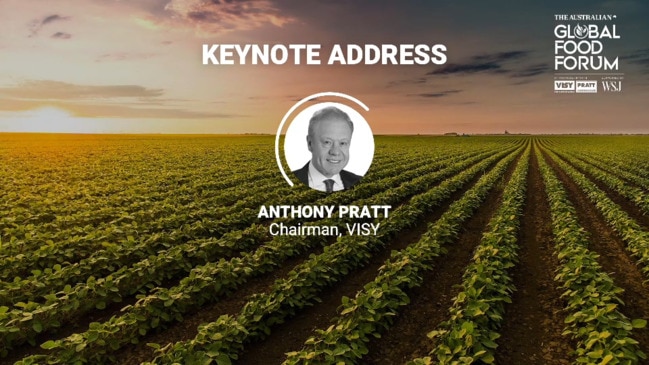Singapore PE firm Proterra planning Australian plunge
One of the leading private equity investors in the food sector in Asia is poised to make its first investment in Australia and is eyeing fresh opportunities in China.

One of the leading private equity investors in the food sector in Asia is poised to make its first investment in Australia and is eyeing fresh opportunities in China, defying concerns about the increased sovereign risk associated with the Chinese economy.
Proterra Investment Partners Asia managing partner Tai Lin said the group was hoping to announce the acquisition of a majority stake in a Melbourne-based healthy snack foods business within the next month.
“They sell everywhere – WH Smith at the airport, at Coles and Woolworths – and what we want to do with them is to introduce them into all the commercial channels and the relationships we have with 10 countries across the region. We believe we can help them with increasing sales and their reputation,” Mr Lin told The Australian and Visy’s annual Global Food Forum in Brisbane on Wednesday.
Proterra is a Singapore-based specialist private equity firm that invests in the Asian food and agribusiness sectors.
It has purchased food-related companies across the value chain, focusing on midstream production and downstream areas which contribute to a more sustainable food system.
Some of its portfolio companies include Oatside, a Singapore-based oat milk brand; No Ordinary Drinks, a China-based healthy beverage brand; Simple Love, a Chinese yoghurt company; and Wuan Chuang, a premium Taiwan-based soy sauce maker.
In June last year, Fidante Partners, the funds management arm of the Australian Securities Exchange-listed Challenger Ltd, entered into a strategic partnership with Proterra Investment Partners Asia.
As part of the alliance, Fidante took a minority stake in Proterra Asia, building on an existing distribution agreement that involves the Australian firm marketing Proterra’s Asia food strategy to investors in Europe.
Mr Lin said he had visited Australia six times in the past 12 months.
“I want to get to know more people here and see what business we can do,” he said.
“Asia is a really important customer for Australia … Australia has such an amazing name and reputation. When something is made in Australia, people in Indonesia, Thailand and China love it.”
Mr Lin told the forum that the investment landscape in the Asian food sector was changing, with the focus shifting from producing more food to ensuring food safety, and catering to individual consumer preferences for healthier, more nutritious, and value-added food.
He said while Proterra had largely pursued the acquisition of business-to-consumer brands in various countries in the region in recent years, it was now also looking at wellness and healthy food brands.
“Since Covid, since the market slowdown, I think now we are going into more transparent food, healthy food, nutritious and functional food,” he said.
Despite the hype surrounding food tech and agritech, he said big opportunities remained in the traditional realm of food production.
While investors continue to shun the Chinese economy amid concerns about geopolitical tensions and rising regulation, Mr Lin, who was born in Taiwan, said Proterra “really liked” China as an investment destination.
“Political risk is often talked about, but I do not think that exists for companies operating in China in different sectors. By the way, I think countries like the UK, Germany and Australia have much higher political risk, constantly changing leadership and government changes due to elections,” he said.
By contrast, he argued China was “very consistent and very predictable”.
“The second reason I really like China at the moment is international capital has more or less disappeared. Big international institutional investors have decided to get out of China.
Historically, for private equity fund managers with a slightly different focus, those periods have been a very good time to make investments. We are not forced to try and sell in a quarter, a year or two years,” he said.
While he acknowledged consumption growth in China had slowed, he said the food sector was recession-proof.
“It is very solid and stable. So I think that consequence of reduced capital inflows and lower valuations, combined with a growing population within a very, very stable food sector and the long-term investment horizon for a private equity fund manager, makes for a very interesting constellation. So I want to go there. We want to deploy more money there right now.”






To join the conversation, please log in. Don't have an account? Register
Join the conversation, you are commenting as Logout